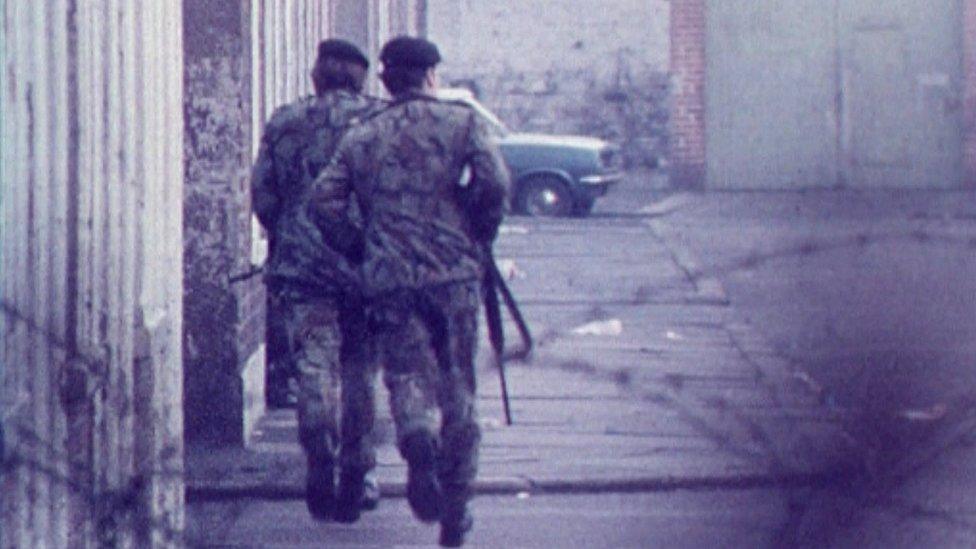Security force 'amnesty could breach human rights law'
- Published

Some Conservative and unionist MPs want a "statute of limitations" to prevent security force members being prosecuted for offences during the Troubles
The Northern Ireland Human Rights Commission has advised the government a ban on prosecuting soldiers and police officers suspected of crimes during the Troubles would amount to an amnesty.
The move may also breach international human rights law, it has said.
The government has decided to ask the public about the so-called statute of limitations as part of a consultation it plans for early in the New Year.
Both Sinn Féin and the Irish government have objected to the move.
Some Conservative backbenchers and DUP politicians have backed the statute of limitations although the DUP leader Arlene Foster told the BBC that she was concerned it could lead to a wider amnesty.
In its advice to the government, the Human Rights Commission says that if the statute of limitations "were held to excuse acts constituting gross human rights violations and abuses (including the right to life and the prohibition on torture or other cruel, inhuman or degrading treatment or punishment) this would be incompatible with human rights law".
The advice was supplied to the government in June and published on the commission's website in August, but has not received wider publicity until now.

Ireland's Foreign Minister Stephen Coveney says a statute of limitations would be "unhelpful"
The Human Rights Commission gave its view on a number of options canvassed by Westminster's defence select committee.
It opposed a suggestion that Troubles investigations into former security force personnel could be halted.
The commission advised this approach would "put the UK government in breach of its international human rights obligations to conduct an effective official investigation under the right to life and prohibition of torture, inhuman and degrading treatment".
The commission approved pressing ahead with the creation of a new Historical Investigations Unit as set out in the Stormont House Agreement.
Early release
It also backed a suggested review of the terms of the law which provided for the release of paramilitary prisoners after the Good Friday Agreement.
Under the Northern Ireland (Sentences) Act 1998, paramilitaries were eligible for release after serving two years.
The commission says the law did not explicitly rule out this early release scheme being applied to soldiers or police officers.
However it notes that "such circumstances do not appear to have been specifically considered in the context in which the legislation was brought forward".
The commission says that given the uncertainty surrounding the 1998 law, it recommends "a review, and if necessary amendment, to ensure the legislation is applied equally and fairly to all perpetrators of conflict-related offences".
- Published24 November 2017

- Published21 November 2017
